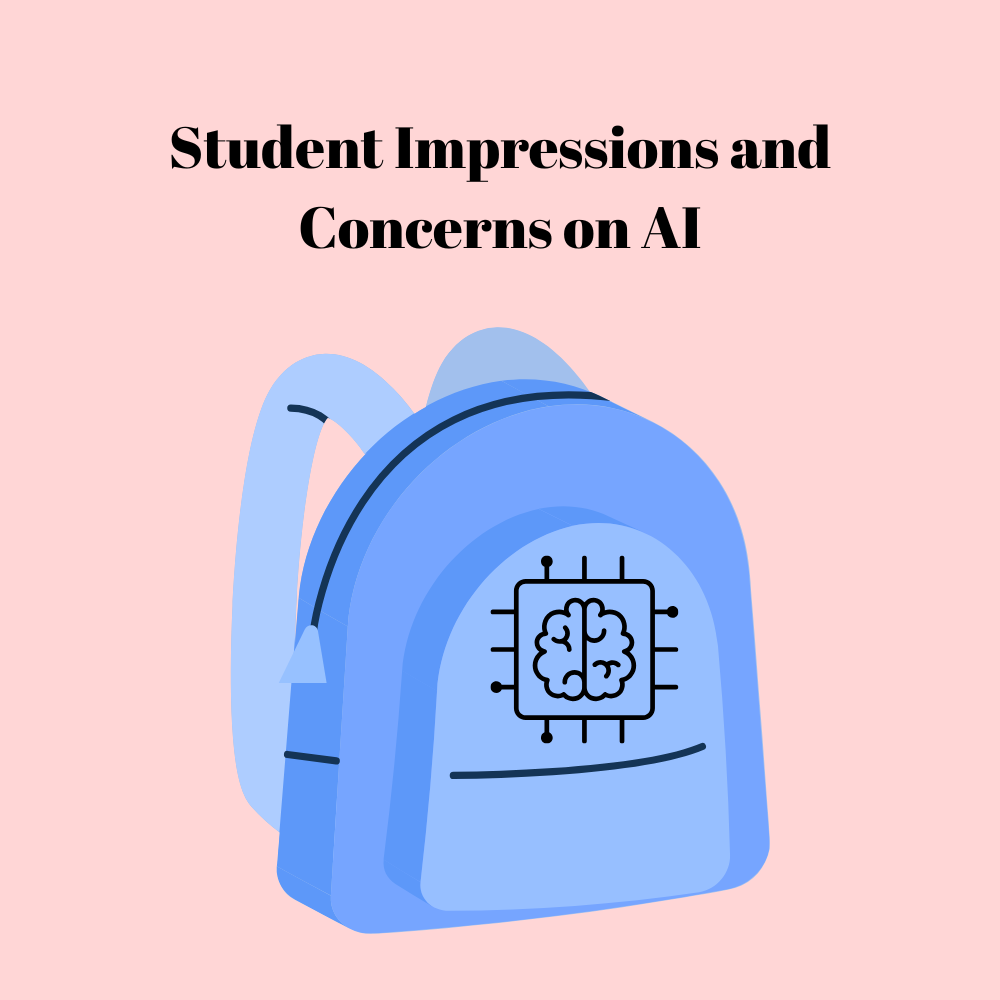Student Impressions and Concerns on AI
By Miguel Murillo
Graphic by Rene Madrigal
The rise of Artificial Intelligence (AI) has caused shock waves around the world. Colleges especially are feeling the effects of this new technology, and finding high usage among students and staff necessitates the addition of new policies and guidelines. In 2023-2024 alone, there was reportedly 86% of students using some form of AI in their studies, and about 61% in faculty like staff and professors.
Chaffey College has plans to create a shared understanding of AI through a guide for students on how to effectively it in their education. In Chaffey’s PTA 2025-2026 handbook, there are guidelines on how to best use AI, such as having it generate flash cards or create study guides.
Some students see the benefits of AI officially being embraced on campus, including Issac Rocka, an 18-year-old Chaffey Student.
He stated, “I’ve honestly used it while studying to get ideas. I think it can be good for students to get ideas for topics and help with what to do.”
Anissa Valenza, an 18-year-old psychology major stated, “I kind of use it from time to time. I just use it very lightly whenever I need help analyzing my work. Like proofreading or fact checking.”
Christian Inglehart, a 24-year-old Computer Science Major added that while the tool is very advanced, the information will need to be double-checked even if you are using it as a study aid.
“I avoid them generally, but I think they’re mostly useful as tools.” Inglehart stated. “I tend to fact-check on whether the information is reliable or not, because there’s so much that it can potentially pull from.”
Some students think it is too soon to accept the technology. Steven Sandeval, an 18-year-old Chaffey student, is worried about the future of the technology and the misinformation spreading from it.
“I don’t know how it is going to be in the future," Sandeval stated. "I think it’s a risk... because I'm not sure how advance it’s going to get.”
Lauren, 22-year-old studio arts major, is also concerned about the over-reliance of a tool and how it can make students less emotionally involved in their academics.
The studio arts major stated: “I think it makes students more reliant and dependent because of how accessible it is. It’s able to gather so much information on the web, but at the same time we need to be doing our own research.”
AI has been promoted as a tool. However, the tool has stirred many ethical and societal concerns that have yet to be addressed. Even if Chaffey were to go forward with helping students gain a familiarity with this technology, some students do not want to use AI at all.
Lauren described feeling overwhelmed because different sites and companies have their own AI interfaces, whether it be through Meta or the platform X's Grok. It is becoming impossible not to interact with services like those, even purposefully.
She wonders if AI will be forced on to students who do not want to be associated with it. Lauren already tries to avoid it as much as possible on applications like Google and Instagram, stating that, "If I had the choice, I don’t want to use it at all.”
Clarence Mariano, a 19-year-old studying Computer Science said, "It can be a double-edged sword, and there is a tool to check answers if you don’t have a study guide. It can help more students feel more confident. On the other hand, it can demotivate students because it can be used to cheat.”
AI has garnered many concerns regarding ethical usage, and college is one of the many areas where that concern is shared. As many colleges consider whether it should be integrated or not, the question still remains if AI will really help students in their education. Although AI was designed to be versatile and personalized towards users, many find themselves to be the ones adapting to integrate AI.

